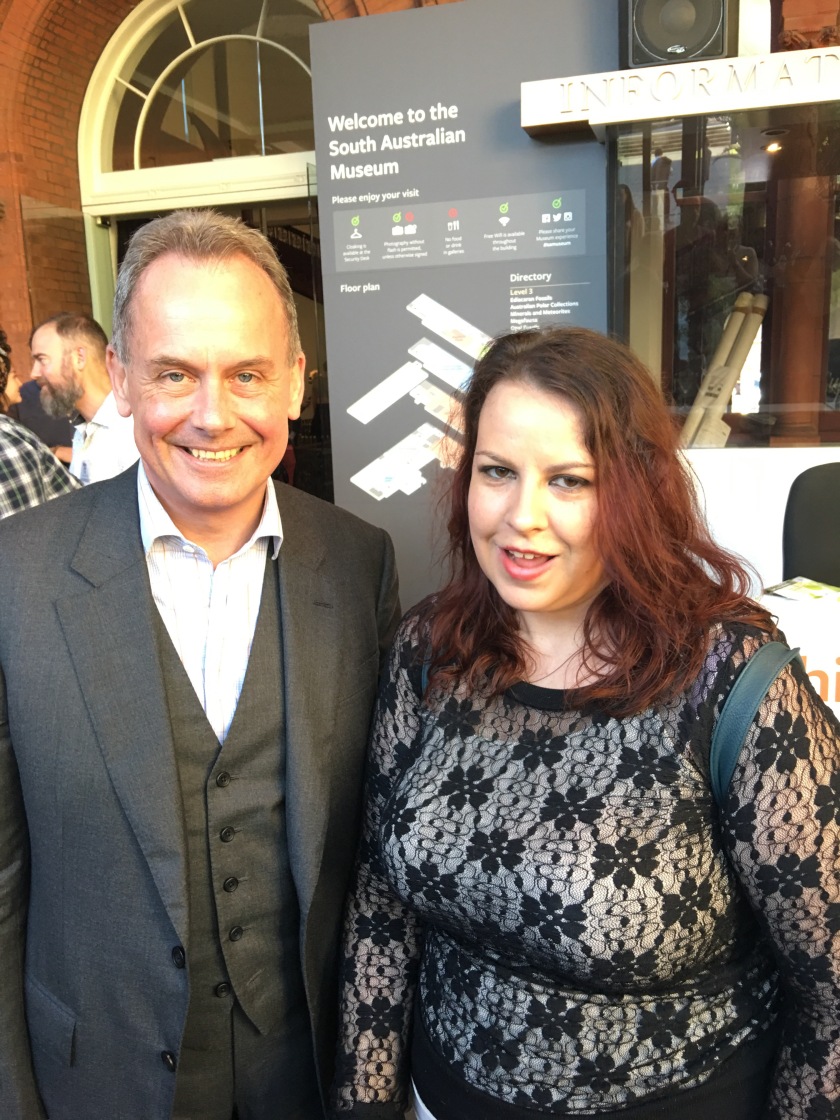 Indiana Don’t!
Indiana Don’t!Welcome to tonight’s actual accessibility archaeology post from me as the Lonely Archaeologist. I started this blog because I thought there was something fundamentally wrong with the way archaeology was practiced in Australia. There’s a cognitive dissonance going on in modern archaeology that to be an archaeologist, that you need to have a degree of mythic superhumanness, I call it “the Indiana Jones syndrome”. You must possess an endurance above the average human being’s limitations and have the sort of intellect that puts Stephen Hawking to shame. Most archaeologists are simply normal specimens of homo sapien but we do enjoy basking in the glow of the legendary tiki torches in the Temple of Doom.
If you aren’t*normal* (and I have significant challenges to overcome but I see my tenacity and persistence as character traits a good archaeologist needs), I was told that I couldn’t be archaeologist. I’ve stuck it out over the last few stressful years, becoming something of a farce in the eyes of the other students, but I have endured. So alongside developing my communication skills to better explain to a diverse public and community what we are doing as archaeologists with scientific communication, I’m trying to carve a space where somebody different can come up behind me without the same resistance I’ve met. There is room for everyone.
 Don’t get mad, write a blog post.
Don’t get mad, write a blog post.So I started this blog as a way of practicing those skills in a heritage appropriate and adjacent area for a disabled archaeologist in documentary and film making. The current system of culture heritage management in Australia wants an archaeologist who can do everything, because I need accomodations out of the ordinary, I’m seen as broken goods. Let’s not pretend I’ve been denied field work opportunities because of my *situation* like the one time I applied to be a normal executive club member but was Othered because I had the audacity to criticise a club. I found some smaller demonstrations and presentation work on my own but I’m unable to regularly find places as a volunteer to excavate or do survey work. I can’t dive medically or even participate in a conservation field school in Australia last year because I wasn’t physically able enough. I can’t get work as tour guide at a library, local museum or any other state institutions I applied to — despite doing extra training and being in the leadership program run by Flinders careers called the Horizon Award. That’s me with the head of the SAM at a Night Lab event in 2016, one I volunteered less than half a week after being hit by a tram so let’s not say that I haven’t met the superhuman endurance expected of an archaeologist!
 Curious Beasts Night Lab event, 2016.
Curious Beasts Night Lab event, 2016.I spoke up on this little blog about my difficulties in finding acceptance at Flinders by other archaeologists & students. As a result, Enabled found me, a dis/Abled and Enabled community of archaeologists and students from a wide international context and I learned about a model of archaeology that aims to be inclusive and accessible for all in so many ways across so many branches that is a whole lecture in itself. I’ll explain about them more if I can get my ten minutes of fame at Flinders.
If you’ve been reading this blog at all, you know I’m a gigantic academic fan of Doctor Who and time travel in general. In fact last year I almost had a chapter published based on queer attitudes in archaeology and in science fiction in Beyond Indy and Lara (but missed out due to my university’s inaction to remove a stalker from a group project in an elective subject and unsupportive lecturer (whose teaching pedagogy was incompatible with advice given disability service’s advice and my right not to be stalked because I wouldn’t do her work for her), it aggravated my newly diagnosed but not managed, fibromyalgia.
That is me on a ghost hunt at the Old Gaol trying to get review experiences of Haunted Horizon’s award winning tour proving I can get around a heritage site safety except for the ghosts. Those guys just loved me so much I got a stigmata friendship bracelet…

The thing is, when I was studying Doctor Who’s vision of archaeology in the future, I was encouraged because the most well known archaeologist, River Song, was a psychopath (with Time Lord DNA making her as different from neurotypical like me). There was also Jack Harkness, a pansexual time agent who was pretty close to Lara Croft in attitude towards black market antiquities, deviated from the Indiana Jones stereotype and of rugged Howard Carter manly adventuring tomb raiding mythology (even poor Lara had to be more macho than the men and was prey to toxic masculinity). Here are some famous British examples of archaeology of the speculative future and neither of them are like the models we have in Australia. Here we get the Man From Snowy River…River Song had fought against her mental illness/injury all her augmented life span and Jack’s inventive approaches to illegal artefact acquisition and selling were anything but conventional archaeology. He did less damage than Lara and Indy combined! I like to see the innovation they came up with as the spirit of enabling people to do archaeology, give us the tools and opportunities to succeed, we tend to succeed.
 We can all change.
We can all change.These two characters with the addition of Berenice Summerfield (from the Big Finish extended Whovian universe), are holding space quite literally for diverse Enabled archaeologists like me in popular culture. The EAF starting in Britain is a part of this gradual shifting in position of accessibility in archaeology and expanding the experiences and diversity in the heritage discipline. Some of the archaeology establishment don’t have the foresight to see this how times are changing.
I’ll post more on eventually on this and how it all relates to a book with the title “Time travelling and the future of the past” by Professor Cornelius Holtorf and how my ideas were received in conversation around the visit to Flinders about these changes happening all over the world. I imagine after looking through Holtorf’s book that lived experience and the futurism of archaeology is going to be a fascinating conversation.
 Time agent, Captain Jack Harkness from Doctor Who.
Time agent, Captain Jack Harkness from Doctor Who.Clara Santill, 2017 (edited 15/04/2018)